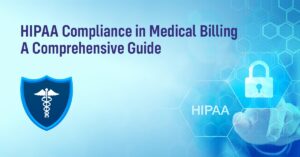When a hospital stay extends to an overnight visit, billing gets more complicated than most hospital administrators would have ever imagined.
There’s a four digit revenue code for each bed, meal and medical service in order for insurance companies to know what the hospital provided and how to compensate it.
These codes serve as a map for payers. They navigate through the type of services being billed for, such as a night in a regular room, operative room time, or lab work done.
Typical revenue codes you may see:
- 011X-016X: Room/board for inpatient stays
- 036X: Operative room time
- 045X: Emergency room service
- 025X: Medications provided on-site
Let’s learn the details of revenue code 0113, including its reimbursement rate and utility.
What is Revenue Code 0113 in Medical Billing?

Revenue code 0113 indicates to the insurance payer that a child is placed in a private inpatient room with one bed and the hospital is billing for room and board for the day. This revenue code is located within the 011X family, which is the private room and board codes, and “13” is the pediatric subtype. On the UB-04 claim, you will enter this code in the revenue code field (form locator 42).
💡 “Room and board” includes the room itself, the bed, meals, routine nursing care, and typical inpatient comforts and supplies that every pediatric patient on that unit receives.
Use revenue code 0113 when the following are true:
✔️ The patient is a pediatric inpatient.
✔️ The child was assigned a private room.
✔️ You are billing for the routine room and board charge for that day.
What it doesn’t include:
❌ Tests/procedures such as labs and imaging.
❌ Medications billed as ancillaries.
❌ Physician or professional fees. (These services will be billed separately under their own revenue code or on professional claims.)
Note: If the room had advanced technology (like ventilator support) or ICU capabilities, then a different revenue code may be more appropriate, i.e. a revenue code in the ICU category.
Why an ICU stay is different, and why RC 0113 can’t be used to bill the ICU stay?
Revenue code 0113 only applies to a private room pediatric patient on a general inpatient unit. It is the billing descriptor for routine room and board on a general inpatient unit.
There is a full family of revenue codes for ICU stays, called the 020X revenue code series. Each of these codes indicate to the payer that the patient needed a level of care that is more intensive than what the inpatient floor can provide. The proper code for pediatric ICU is 0203. Billing an ICU stay using the ICU revenue codes indicates increased staffing, monitoring, and resources as compared to a standard floor, which is important to payers who will reimburse differently than they would for a routine health room and board.
If the patient is in the ICU, your accommodation line should reflect one of the ICU codes such as the 0203, and not the RC 0113. Claims data and many analytics flag ICU days by looking for 020X codes, so putting 0113 on an ICU day mislabels the stay and can cause pricing or reporting problems.
Quick example: A child aged 6-years is on mechanical ventilation in pediatric ICU. So here, you will bill the room and board for that day with 0203 Pediatric ICU. The 0113 revenue code is not being used because the patient was, at that moment, in the pediatric ICU not in a standard private pediatric room. Ancillary services like ventilator management are billed under their own revenue codes.
The Usage of Revenue Code 0113 Explained with Examples
Remember, 0113 is only for pediatric inpatients staying in a private room. It is how you bill for room and board on the UB-04 for those inpatient days. Everything else like medications, labs, and x-rays will have their own revenue codes.
Here are some key scenarios to understand the usage of revenue code 0113 in the billing process.
Example 1: Pediatric Floor Stay in Private Room
Let’s say you have a 7-year-old admitted after an asthma flare. He stays 3 nights on your pediatric floor and is in a private room.
👉 The hospital will bill 0113 for every inpatient day for room, nursing care, and meals.
👉 You will bill the respiratory therapy, labs, and imaging using separate revenue codes (e.g., 041X respiratory services)
Example 2: ICU Day Followed by a Private Room Stay
Maybe a 6-year-old starts out in your pediatric ICU on day 1 and then transfers to a private room for two more days.
👉 You would bill 0203 (pediatric ICU) for the ICU day.
👉 Then bill 0113 for each of the private room days.
👉 Ancillary charges, such as respiratory therapy, labs, and medications, are still billed on separate lines.
Get Paid Fast on 0113
Outsource your medical billing needs to BellMedEx. We will code your pediatric private room days, complete the UB 04 accurately, and follow each claim until the reimbursement is posted. We will appeal denials at no charge until the final payer decision.
Reimbursement Rates for Revenue Code 0113
Just like with other room and board codes, the amount you receive for 0113 depends on the payer and your hospital’s contract with them.
Medicare Reimbursement Rates
You probably don’t see many Medicare pediatric patients, but it does come up occasionally for children with disabilities or special eligibility. If so, Medicare pays through the MS-DRG system, and the daily room & board is expected within the one bundled payment for the entire stay.
Even though the single bundled payment is inclusive of admission related services, the 0113 charges count toward the total cost of care. In addition to that, your charges are used to calculate outlier payments and future payment rates.
When you assign a private room, make sure the chart shows a medical reason—like isolation—because Medicare usually won’t pay more than the semi-private rate unless the private room is necessary.
Medicaid Reimbursement Rates
For most pediatric admissions, Medicaid is the main payer, and each state handles this differently.
Some states utilize DRG’s and bundle all services into one payment. Other states use a flat per day rate that may take in consideration for private room and age of pediatric patient. Many states run Medicaid through managed care plans, which may use case rates or per diem rates.
The safest approach is to check your state’s Medicaid policy and your managed care contracts so you know exactly how 0113 is reimbursed and whether a private-room medical-necessity note is required.
Commercial Insurance
Commercial insurance billing will depend on your negotiations with the patient’s insurance company. Some plans will pay a per diem for each day a patient was in the room, based on the diagnosis. Other plans use a DRG or case rate. Some plans will just only pay you based on a percentage of your billed services.
Here are some average private payer reimbursement rates for RC 0113 (sourced from PayerPrice):
| Insurance Company | Approx. Reimbursement (per day) |
| BCBS | $1,200–$1,800 |
| Aetna | $2,000–$3,500 |
| UnitedHealthcare | $1,800–$4,000 |
| Cigna | $2,500–$5,000 |
Note: Do not use average reimbursement charts you may find online. Look at your own contracts to be better prepared for what to expect from each specific payer.
How to Submit Revenue Code 0113 on the UB-04 Claim Form
Let’s say your hospital admitted a child and they were placed in private room. You would use revenue code 0113 so the payer knows you are billing for room and board on a daily basis. Because this code is very particular about how you enter it, let’s step through it so your claim will not be delayed or denied.
1). Put 0113 in the Right Place
You start off by placing 0113 in Form Locator 42 in the UB-04 form.
After entering 0113, you need to decide whether you are going to place each inpatient day on an individual line in the claim or if you are going to group them on a single line with the number of days in Form Locator 46. (Because some payers want separate daily itemized lines and others prefer a single summary line, you should follow the guidance in the payer’s billing guide).
After completing this step, check Form Locator 44 for HCPCS codes. Room and board normally are not applicable for HCPCS codes so this would generally be blank. There are exceptions if so stated in the payer’s guideline.
2). Verify the Diagnosis Corresponds to the Stay
The principal diagnosis in Form Locator 67 should provide the underlying reason for the inpatient admission and your secondary diagnoses Form Locator 67A – 67Q should provide an overall picture. This is important because diagnoses like pneumonia, severe asthma, or dehydration usually support an inpatient stay, while vague ones like “fever” or “cough” can get the claim denied or downgraded.
3). Confirm the Room Type Matches the Code
After you confirm the diagnoses, make sure the room assigned falls with the revenue code. A private pediatric room would fall within 0113 but if it was a semi-private pediatric room, you would want to use 0123. If not a pediatric patient, you would want the appropriate codes for a private room such as 0111. You also switch codes completely if the patient is in a newborn nursery (017X), ICU (020X), observation (0762), or emergency department (045X).
4). Document the Orders Clearly
Once you have established the diagnosis and codes, move to the chart. There should be an explicit admission order for inpatient status plus order/note for the patient in a private room. Only some payers allow for private room rate, unless medically necessary, therefore ensure to indicate the date, time, and reason for private room.
5). Check that the DRG Makes Sense
Then, after documentation, you will want to check the DRG matches the stay. Given DRGs are the majority determinants of inpatient claims reimbursement, you will want to make sure diagnosis and procedure codes and length of stay would correlate with the revenue code. If the DRG suggests that the care should have been outpatient or does not make sense in the clinical picture, fix that first before you bill.
6). Use Modifiers Only When Necessary
Usually, you do not need a modifier on the UB-04 room and board line, however some state Medicaid programs or managed care plans may request modifiers for unique authorizations or high-cost cases. Follow your payer manual. If the payer manual states the usage of a modifier, then use one, and if not, use none.
7). Bill Continuing Stays the Right Way
When a child stays through the end of a month or billing period, you keep using 0113 for each private room day, but send interim claims with the right bill types—112 for the first interim, 113 for continuing, and 114 for the final discharge claim. Be sure the statement covers period in Form Locator 6 is correct and that your units add up, so the payer can see it’s one continuous stay and not duplicate charges.
Recover Missed Revenue with a Free 0113 Claim Review
We will review a sample of your recent 0113 claims. We identify where denials or underpayments are happening and precisely how much you could recover.
Conclusion
Revenue Code 0113 is just how you communicate to the payer that a pediatric inpatient patient was in a private room and you’re billing the daily room and board.
- Use it for only those true private pediatric room days. Have a diagnosis that supports inpatient care. Document the reason a private room was medically necessary, if relevant.
- Do not bill 0113 for ICU, observation, nursery, or any ER visits. Use the correct revenue code for those.
- Lastly, reference your payer contracts for the exact reimbursement rates.




